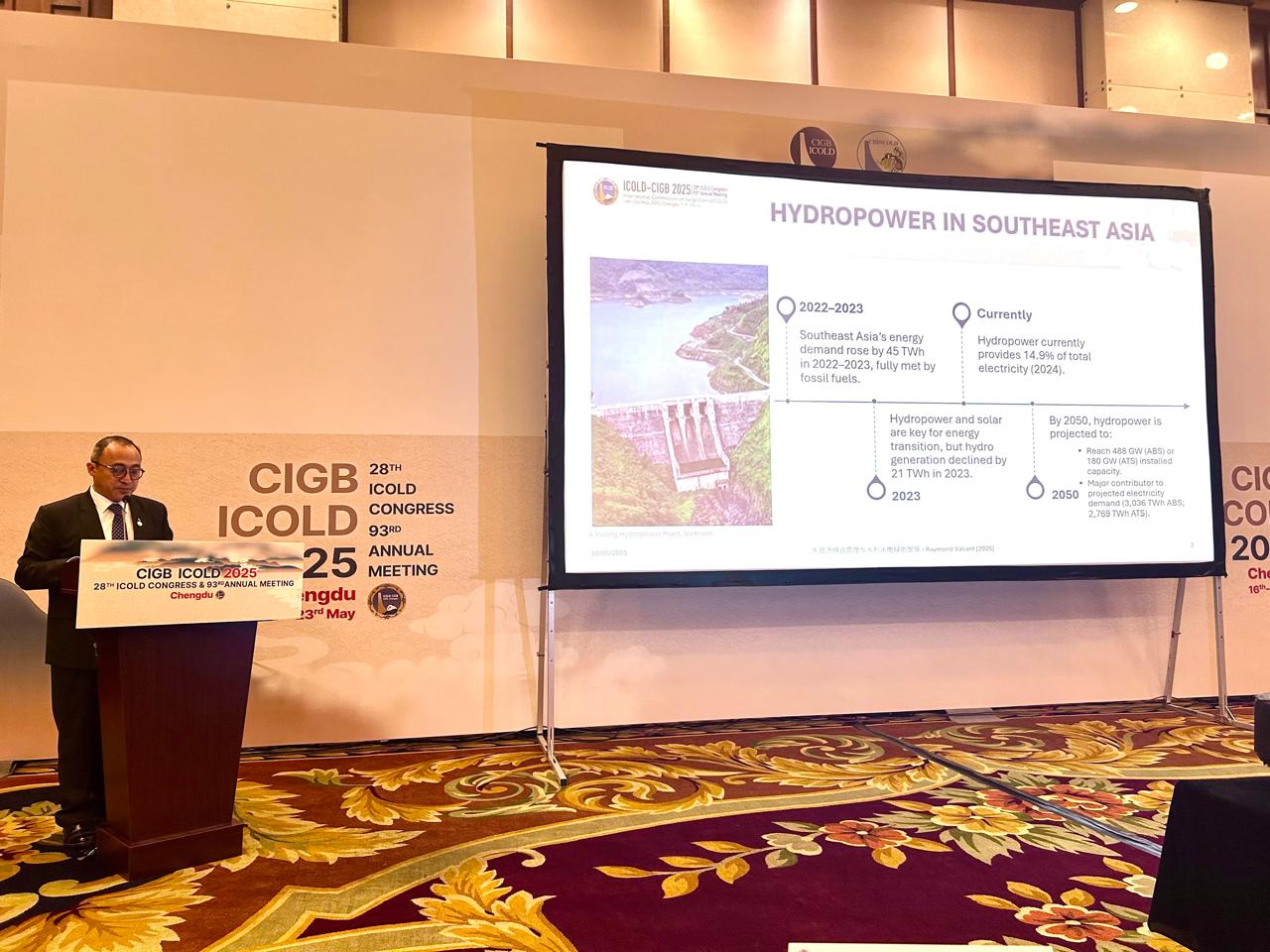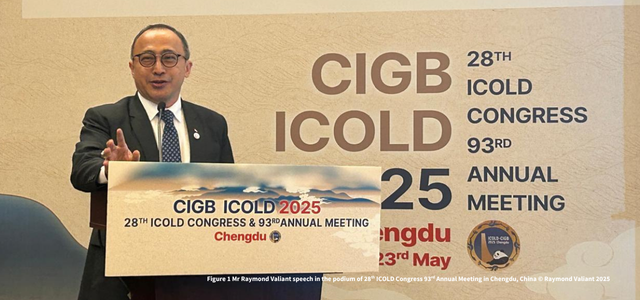Among the key voices at the conference was Raymond Valiant, Regional Coordinator of Global Water Partnership Southeast Asia (GWP SEA) and Chair for Training & Dissemination at the Indonesian Committee on Large Dams (INACOLD). Representing both Indonesia and the broader Southeast Asian region, Raymond delivered two presentations that captured the attention of delegates for their technical depth and regional vision.
During the thematic workshop on “Integrated Water Resources Management and Green Hydropower,” hosted by the China Water Partnership, Raymond took the stage to speak on “Aligning IWRM and Hydropower: A System Approach to Southeast Asia’s Water-Energy Nexus.” His message was clear, hydropower and water resource management must not operate in isolation, it must be managed as a part of the water-energy-food-environment nexus. With Southeast Asia’s energy demand rising by 45 TWh between 2022 and 2023, largely still fuelled by fossil sources, hydropower remains a vital component of the region’s energy mix, supplying 14.9% of total electricity.
 Figure 2 Raymond in his presentation about Aligning IWRM and Hydropower: A System Approach to Southeast Asia’s Water-Energy Nexus © Raymond Valiant 2025
Figure 2 Raymond in his presentation about Aligning IWRM and Hydropower: A System Approach to Southeast Asia’s Water-Energy Nexus © Raymond Valiant 2025
Yet, as he emphasized, optimizing output from existing hydropower facilities is not just a matter of upgrading turbines or adjusting operations; it requires a systems approach. He explained that Integrated Water Resources Management (IWRM) offers a critical framework for balancing water allocations across sectors, protecting river basin health, and guiding long-term, climate-resilient investment in green infrastructure. The presentation coincided with encouraging news that the Global Water Partnership is evolving into a climate-resilient investment support platform, reflecting a broader shift in global water governance.
At the Asia Pacific session, Raymond, as the Chair for Training & Dissemination of the Indonesian Committee on Large Dams, highlighted Indonesia’s efforts to modernize dam management amid challenges like sedimentation, seismic risks, and aging infrastructure. He emphasized using AI monitoring, robotic inspections, and regulatory reforms as part of a broader strategy for climate resilience. More importantly, he called for regional cooperation, urging Southeast Asian nations to move beyond fragmented efforts and address shared water risks through collective action.
The presence of GWP-SEA at ICOLD 2025 marked more than just participation in a high-level gathering; it was a statement of intent. It underscored the region’s readiness to lead with innovation, collaboration, and a long-term vision. As the conference concluded, one thing became clear: Southeast Asia is not just reacting to climate pressures, it is shaping the way forward together.
